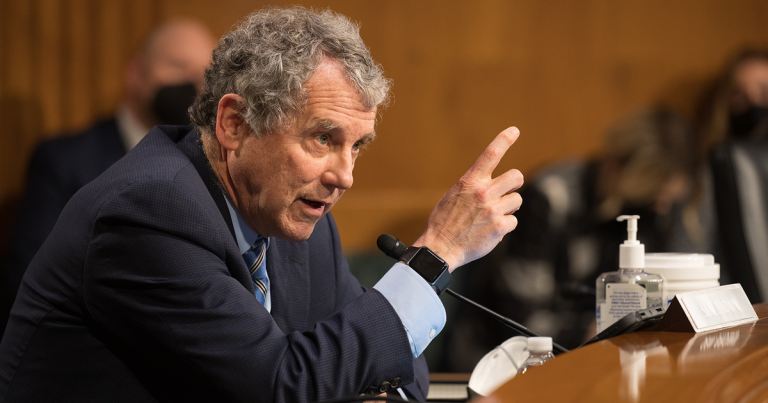WASHINGTON, DC – Today, Senator Sherrod Brown (D-OH), Chairman of the Senate Banking, Housing, and Urban Affairs Committee, Senator Jack Reed (D-RI), and Senator Bob Menendez (D-NJ) ), Mark Warner (D-Va.) called on President Joe Biden to increase funding for export control management and enforcement. In their letter to the president, the senators cited comments from key administration officials and emphasized the importance of the Bureau of Industry and Security (BIS) to national security policy. Enhanced BIS funding will enable BIS to protect U.S. sensitive technology and strengthen export control rules and enforcement to protect national security.
“BIS is a critical component of our nation's national security policy and uses export controls to achieve strategic national security and foreign policy goals.” the senators wrote. “A critical step toward building a stronger, more responsive export control system is ensuring that BIS has the resources it needs to accomplish its critical mission. With these efforts in mind, We recommend that the FY25 budget request include strong funding for BIS.”
In January, Mr. Brown held a hearing before the Senate Banking, Housing and Urban Affairs Committee on “National Security Challenges: Outpacing China with Emerging Technologies,'' in which he spoke about expanding the use of export controls and strengthening economic and national security authorities. Focused on necessity. Witnesses at the hearing recommended increased funding for BIS.
You can read the full letter here and below.
Dear President Biden:
We strongly encourage you to include a significant increase in funding for the Department of Commerce's Bureau of Industry and Security's (BIS) export control mission when finalizing your FY2025 budget request.
In December, Secretary of Commerce Gina Raimondo spoke at the Reagan Defense Forum about the important and increasingly important role of export controls in addressing the national security risks posed by the Chinese government's technology development and acquisition strategies. explained. He discussed the need to build a “more muscular” Department of Commerce to address these risks, noting that despite the importance of BIS's mission, “BIS currently has the same budget as it did 10 years ago. “There are twice as many license applications being made.” Secretary Raimondo emphasized the importance of funding BIS, saying she “just as we need funding to do what we need to do to protect the United States.” These comments build on previous statements from administration officials, including National Security Adviser Jake Sullivan, who said: [export controls] It can become a new strategic asset. ”
BIS is a critical component of national security policy and uses export controls to achieve strategic national security and foreign policy goals. In recent years, BIS has built a global export control coalition that denies significant Russian military contributions to counter Russia's continued aggression in Ukraine. It imposed country-wide restrictions on exports of supercomputing, advanced semiconductors, and advanced semiconductor manufacturing equipment to China. We have also taken groundbreaking enforcement actions against companies and individuals who violate export control laws and regulations. These aggressive actions have restricted the export of critical U.S. technology, software, and goods in order to advance national security and foreign policy interests.
To keep pace with technological developments and those seeking to evade U.S. export controls, BIS is assessing what resources and personnel are needed to maintain an effective, efficient, and responsive export control regime. Must be continuously evaluated. What technology improvements and capabilities are needed to eradicate illegal sourcing and export control evasion networks; What expertise is needed to assess critical new technologies for control; Export allies and partners; There is a need to assess what additional capabilities are needed to expand international engagement with the United Nations. What is the analytic infrastructure that allows BIS to more quickly and effectively perform the analysis required to decide whether and when to apply controls, and the potential of those controls? What are the collateral effects and how can BIS improve its ability to assess the effectiveness of its controls? Export regulations will become stricter over time.
Last month, the Senate Banking, Housing, and Urban Affairs Committee held a hearing on national security challenges related to the development and acquisition of advanced technologies. A central theme of the hearing was the expanded use of export controls and the need to strengthen economic and national security powers and resources. Among their recommendations, the witnesses called for increased funding for the Bureau of Industry and Security, specifically BIS' international engagement efforts, access to unbiased industry information and trade data, and analytical capabilities to evaluate specific technologies and evaluate their effectiveness. asked for additional funding to strengthen the of their control.
A critical step in building a stronger and more responsive export control system is ensuring that BIS has the resources it needs to accomplish its important mission. With these efforts in mind, we recommend that the FY25 budget request include strong funding for BIS.
We are ready to work with you to get that funding through the allocation process.
Sincerely,
###


